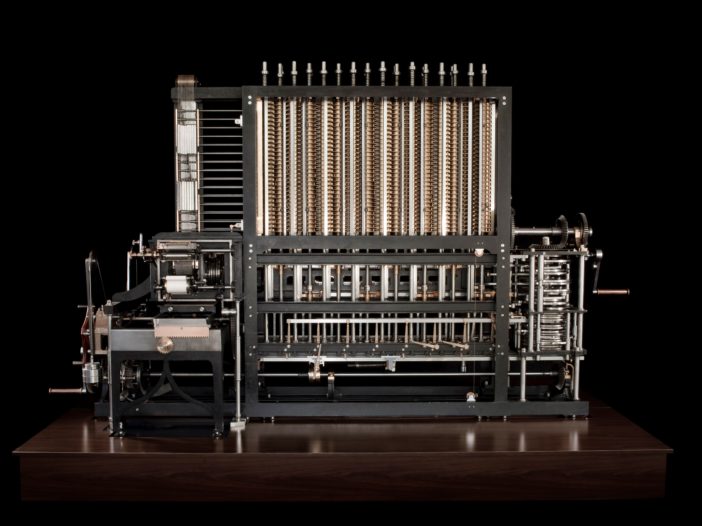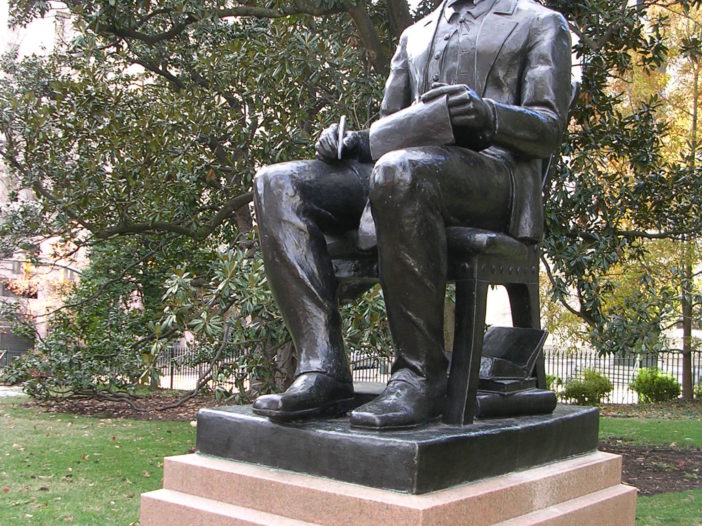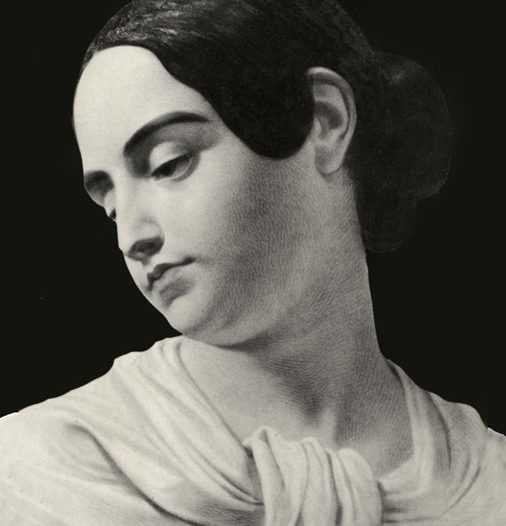Poe Exposes Maelzel's Automated Chess Player, Part II
Murray Ellison | Dec. 2nd, 2017
In 1836, Poe asks readers of the Richmond-based Southern Literary Messenger to ponder the implications for the future if a machine could calculate without human input. He writes, “There is no analogy, whatever, between the operations of the chess-player and those of the calculating machine of Mr. Babbage,” Poe argues. If we chose to call the former a pure machine, we must be prepared to admit that it is, beyond comparison, the most wonderful invention of mankind,” referring to the prototypes of the ...
The Poe Museum Blog
Poe Statue Takes a Ride
Poe is on the move! After nearly six decades sitting across the street from the home of Poe’s first great love and muse, Richmond’s statue of Edgar Allan Poe has been displaced to make room for some newer sculptures. This is only the latest in many twists and turns in the life of Virginia’s first public Poe statue.
It all began in 1906, when a small band of writers, historians, and artists proposed the installation of a statue of Poe in the author’s hometown. Lack of funding—and a general lack of public enthusiasm—soon brought their efforts to an end. By then, Richmond was already lagging ...
Edgar Allan Poe and the Culture of Mourning
From train accidents, bridge collapses, and steamboat wrecks, to diseases such as the "White Plague," or tuberculosis, it is undeniable that the nineteenth century was a witness of tragedy and deep mourning. Although the idea of mourning and mourning culture is not exclusive to the 1800s, it is safe to say the 1800s may have especially romanticized death and dying. Consider Poe, who wrote in The Philosophy of Composition, "the death, then, of a beautiful woman is, unquestionably, the most poetical topic in the world..." From post-mortem photography and paintings to mourning brooches ...
Poe’s Investigations of a 19th-Century Automated Chess Machine – Part I
Charles Babbage’s First Automated Chess Machine on Display in the London Science Museum
Written By Murray Ellison | November 1st, 2017
Literary Historian, Gerald Kennedy writes, “In Poe’s writing career he worked… as a proofreader, editor, reviewer” of newspapers in Baltimore, Richmond, Philadelphia, and New York—the publishing centers of the United States” (64). These venues exposed his imaginative ideas to the largest possible audience available in the country in the early to mid-nineteenth century. Burton R. Pollin commented in 1973 at the Annual Convention of the Poe Society in ...



